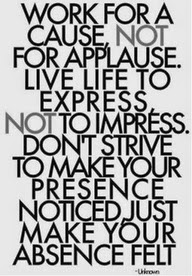Dear students,
Welcome (back) to our class blog!
I hope you are all doing fine and that you have successfully
passed all the exams needed to enter the next year of your studies. And I hope you enjoy in all the privileges of
being a student and having the opportunity to learn and upgrade not only your
knowledge and skills, but also your personality.
Education is the basic human right and it should be
available to everyone. Unfortunately, we witness from media every day that this
fundamental right is violated somewhere in the world, especially in poor and
undeveloped countries. There are still
millions of adults and children who are denied their right to education.
For these reasons, UNESCO has been mandated to lead a global
movement 'Education for All', aiming to meet the
learning needs of all children, youth and adults by 2015.
These
are the six Education for All goals that run to 2015:
Goal 1:
Expanding and improving comprehensive early childhood care and education,
especially for the most disadvantaged and vulnerable children.
Goal 2: All children, particularly girls, children in difficult circumstances
and those belonging to ethnic minorities have access to free, quality and
compulsory primary education by 2015.
Goal 3: Ensuring that the learning needs of all young people and adults are met
through equitable access to appropriate learning and life skills programmes
Goal 4: Achieving a 50 per cent improvement in levels of adult literacy by
2015, especially for women, and equitable access to basic and continuing
education for all adults
Goal 5: Eliminating gender disparities in primary and secondary education by
2005, and achieving gender equality in education by 2015, with a focus on
ensuring girls’ full and equal access to and achievement in basic education of
good quality
Goal 6: Improving every aspect of the quality of education, and ensuring their
excellence so that recognised and measurable learning outcomes are achieved by
all, especially in literacy, numeracy and essential life skills
'180 countries signed up
to make these goals happen, committing to putting legal frameworks, policies
and finance in place so that everyone, no matter what their circumstances,
could have an education - one that is available, accessible, acceptable and adaptable.
The richest countries pledged to help make Education for All a reality by
committing to principles of international cooperation towards those countries
with fewer financial resources.'
As
we are moving closer to the 2015 deadline, it is evident that the progress is
rather slow and it will certainly take more time and commitment to achieve
these goals in the future. We should all do something about it and try to help
those who still struggle against suppression and prejudices.
Recently,
the world has seen an outstanding example of a 17-year-old Pakistani girl who
has toured the world speaking up for the rights for girls to receive an
education. The little activist Malala Yousafzai has been awarded the Nobel
Peace Prize for 2014. Only two years and a day after she was shot
by a terrorist on a school bus. Luckily, she survived to become the youngest
ever recipient of the prize.
What
do you hope for Malala's and her compatriot's future? Do you believe that
everyone will get an education in the future? How does it change someone's
life? How much do you value your education?
I
look forward to seeing you online again with your comments!
P.S.
Here are the links for exercises:
Best
regards,
Izela

.jpg)
.jpg)


.jpg)



.jpg)

.jpg)







.jpg)

.jpg)







